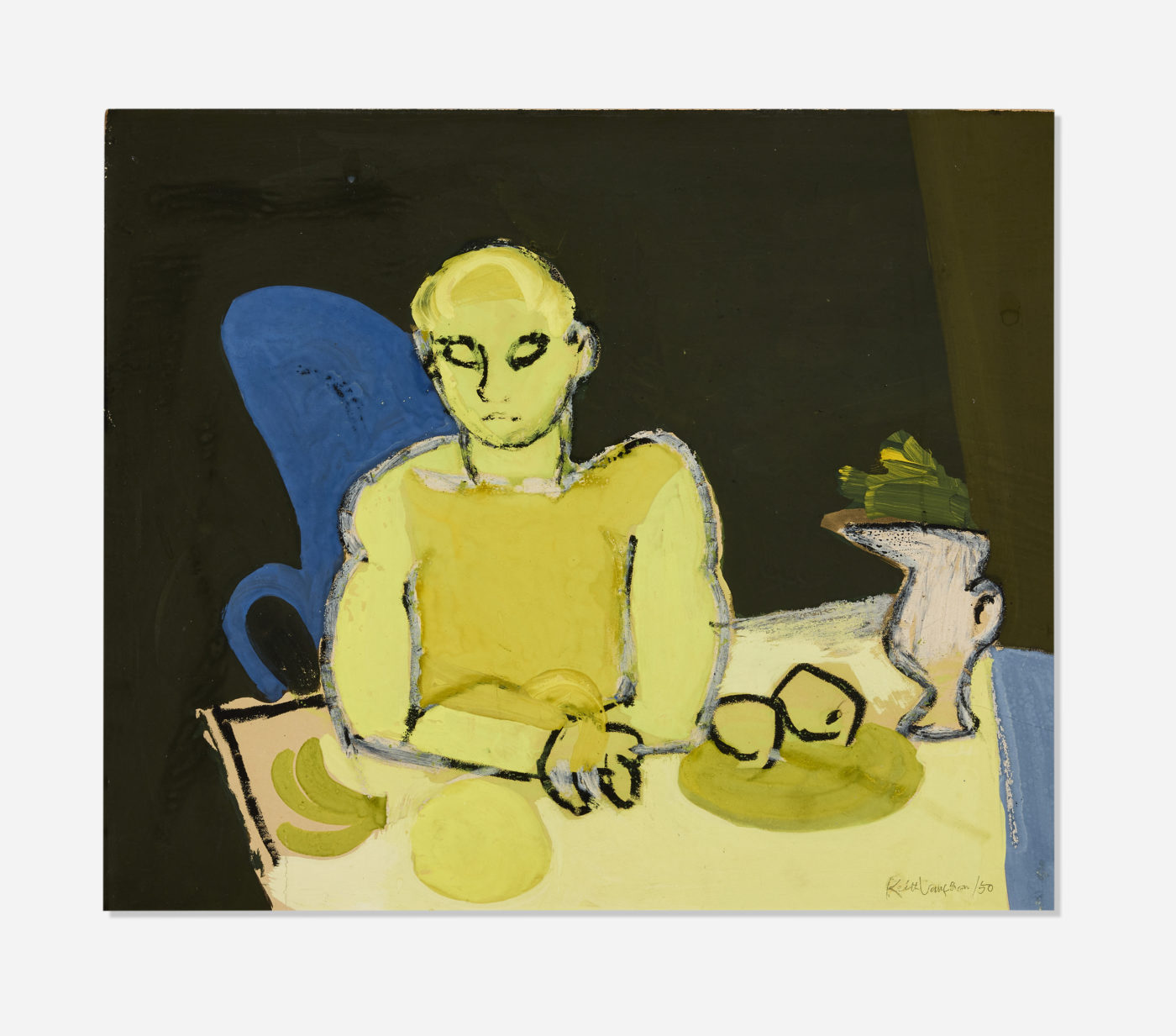Born in Selsey, Vaughan attended Christ’s Hospital school. He was employed in an advertising agency until the war when, as an intending conscientious objector, he joined the St John’s Ambulance; in 1941 he was conscripted into the Non-Combatant Corps. Vaughan was self-taught as an artist. His first exhibitions took place during the war. In 1942 he was stationed at Ashton Gifford, near Codford in Wiltshire.
Also during the war Vaughan formed friendships with the painters Graham Sutherland and John Minton, with whom he shared a studio after demobilisation in 1946. Through these contacts he formed part of the neo-romantic circle of the immediate post-war period. However, Vaughan rapidly developed an idiosyncratic style which moved him away from the neo-romantics. Focusing on male figures, his work became increasingly abstract.
Vaughan taught at the Camberwell College of Art, the Central School of Art and latterly at the Slade School.
Vaughan is known for his journals, selections from which were published in 1966 and more extensively in 1989, after his death. As a rather private man, troubled by his sexuality, he is known largely through these journals. He was diagnosed with cancer in 1975 and committed suicide in 1977, recording his last moments in his diary as the drugs overdose took effect.
